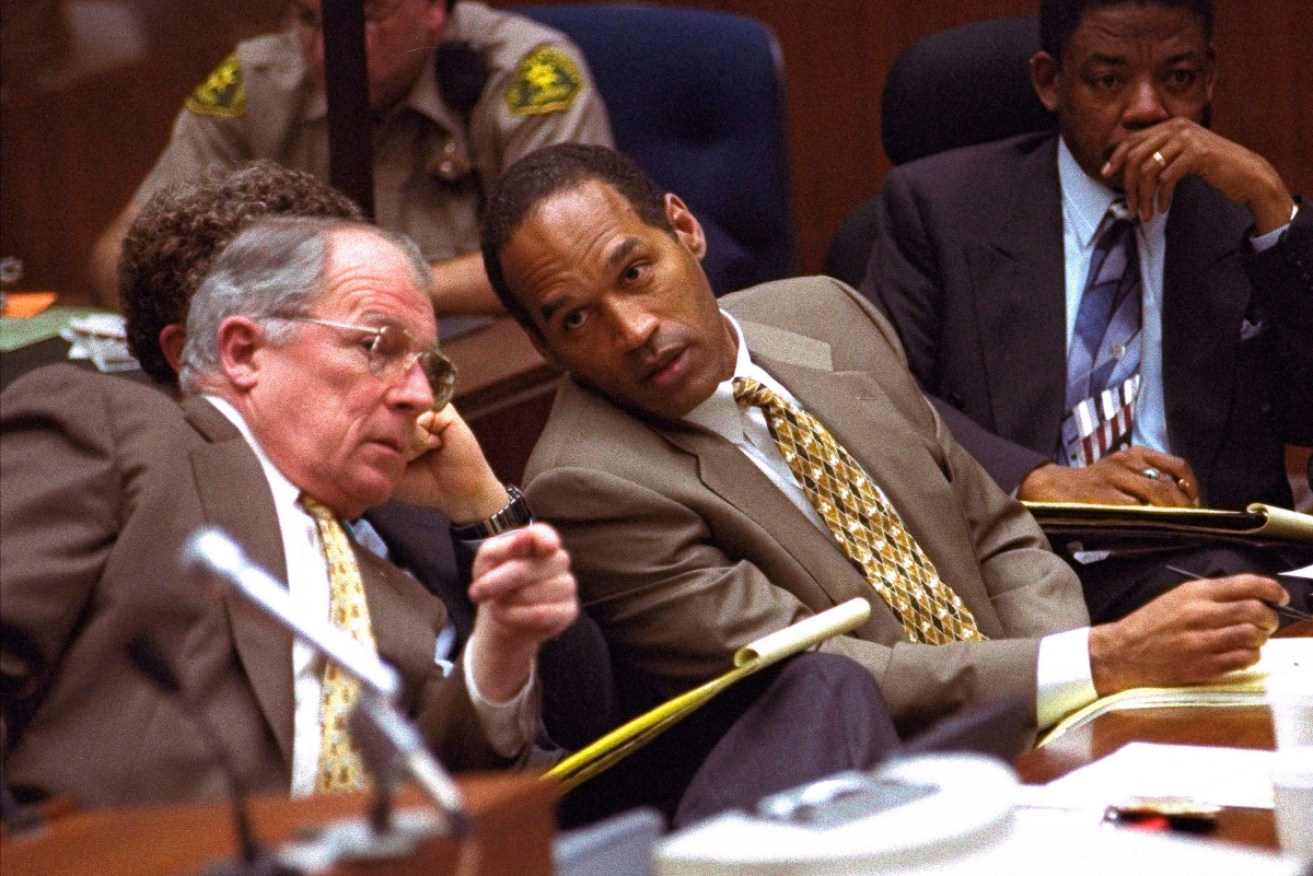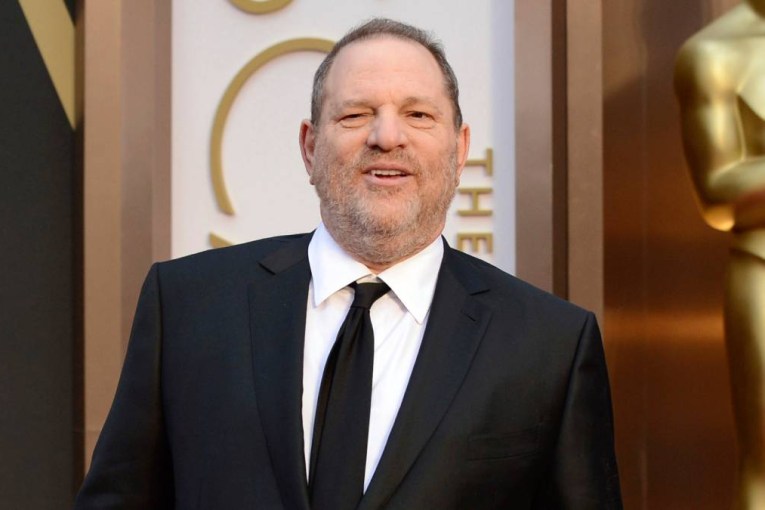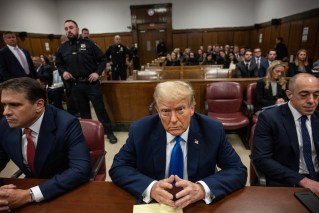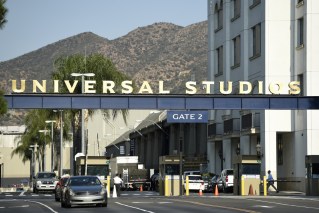Francis Lee Bailey – lawyer for OJ Simpson, Patricia Hearst and the alleged Boston Strangler – dies

OJ Simpson said F Lee Bailey was the most important member of his legal team during his murder trial. Photo: AP
Francis Lee Bailey, the celebrity laywer who defended OJ Simpson, heiress-turned armed robber Patricia Hearst and the alleged Boston Strangler, has died at the age of 87.
Mr Bailey died at a hospital in the Atlanta area, according to Kenneth Fishman, Mr Bailey’s former law partner who went on to become a Superior Court judge in Massachusetts.
Mr Fishman did not disclose the cause of death but said Mr Bailey had moved to Georgia about a year ago to be closer to one of his sons and had been dealing with several medical issues for the past few months.
In a career that lasted more than four decades, Mr Bailey was seen as arrogant, egocentric and contemptuous of authority, and his legal career halted when he was disbarred in two states. But he was also acknowledged as bold, brilliant, meticulous and tireless in the defence of his clients.
“The legal profession is a business with a tremendous collection of egos,” he said an in interview with US News and World Report in September 1981.
“Few people who are not strong egotistically gravitate to it.”
Some of Mr Bailey’s other high-profile clients included Dr Samuel Sheppard – accused of killing his wife – and Captain Ernest Medina, charged in connection with the My Lai massacre during the Vietnam War.
Mr Bailey, an avid pilot, best-selling author and television show host, was a member of the legal “dream team” that defended Mr Simpson, the former star NFL running back and actor acquitted on charges that he killed his wife, Nicole Brown Simpson, and her friend, Ron Goldman, in 1995.
‘I lost a great one’
In a tweet Thursday, Mr Simpson said, “I lost a great one. F Lee Bailey you will be missed.”
Tweet from @TheRealOJ32
Mr Bailey was the most valuable member of the team, Mr Simpson said in a 1996 story in The Boston Globe Magazine.
“He was able to simplify everything and identify what the most vital parts of the case were,” Mr Simpson said.
“Lee laid down what the case’s strategy was, what was going to be important and what was not. I thought he had an amazing grasp of what was going to be the most important parts of the case, and that turned out to be true.”
Mr Bailey’s latest book, The Truth About the OJ Simpson Trial: By The Architect of the Defence, was being released in June.
Mr Bailey earned acquittals for many of his clients, but he also lost cases, most notably Hearst’s.
Ms Hearst, a publishing heiress, was kidnapped by the Symbionese Liberation Army terrorist group in 1974, and participated in armed robberies with the group. At trial, Mr Bailey claimed she was coerced into participating because she feared for her life. She still was convicted.
She was released in January 1979 after president Jimmy Carter commuted her sentence.
Mr Bailey also defended Albert DeSalvo, the man who claimed responsibility for the Boston Strangler murders between 1962 and 1964.
Mr DeSalvo confessed to the slayings, but was never tried or convicted, and later recanted.
Despite doubts thrown on Mr DeSalvo’s claim, Mr Bailey always maintained that he was the strangler.
A ‘philosophy of extreme egocentricity’
Throughout his career, Mr Bailey antagonised authorities with his sometimes abrasive style and his quest for publicity. He was censured by a Massachusetts judge in 1970 for “his philosophy of extreme egocentricity”, and was disbarred for a year in New Jersey in 1971 for talking publicly about a case.
But publicity was part of his strategy, Mr Fishman said.
“Enjoying the public eye became a tool for him,” Mr Fishman said.
“He was one of the first lawyers to go outside the courtroom and talk in front of a bunch of microphones.
“All the news about a case was from the prosecution’s side. So his strategy was to get out there and throw doubt on all the criminal charges.”
Mr Bailey was disbarred in Florida in 2001 and the next year in Massachusetts for the way he handled millions of dollars in stock owned by a convicted drug smuggler in 1994.
He spent almost six weeks in federal prison charged with contempt of court in 1996 after refusing to turn over the stock. The experience left him “embittered”.
He passed the bar exam in Maine in 2013, but was denied the right to practice by the state’s highest court, which concluded that he had not demonstrated that he understood the seriousness of his actions that led to his disbarment in the other states.








